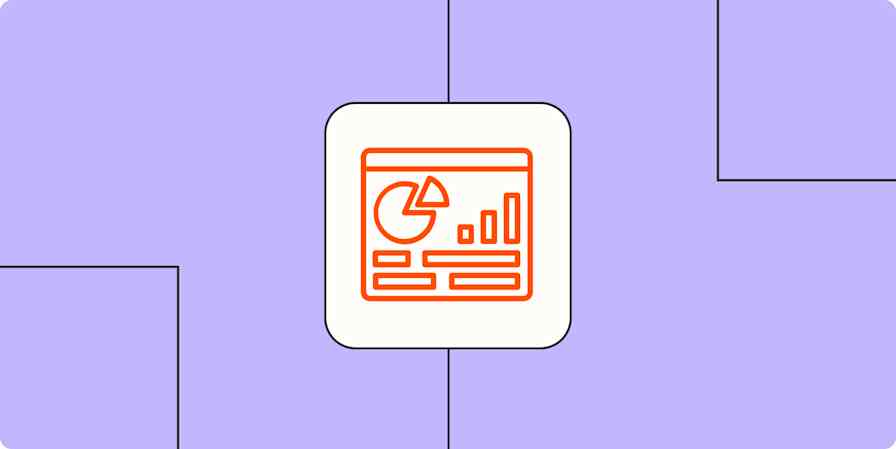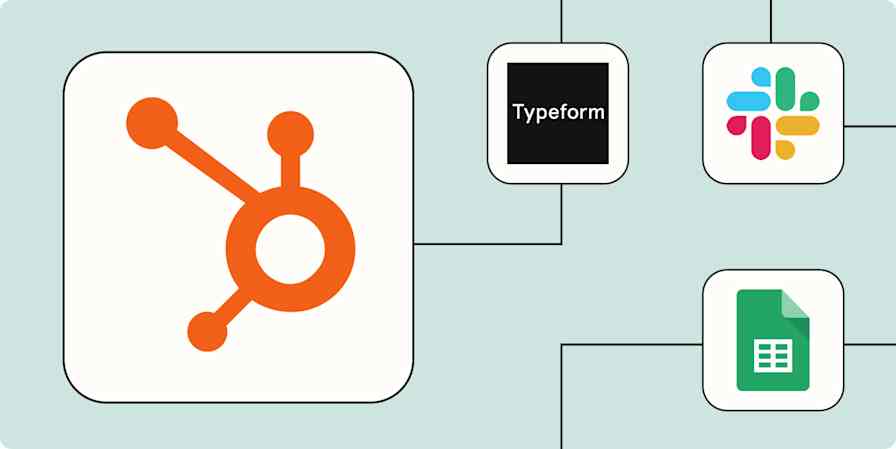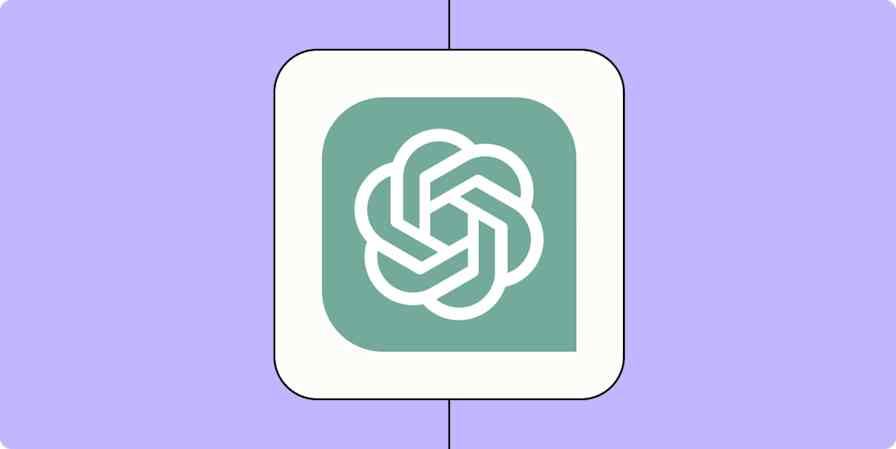From acquiring leads to following up with cold accounts to handling customer queries, sales teams have a lot to do. Like shooting guards coming off a pick on the perimeter, sometimes they need an assist to close the deal. (Don't check my basketball theory—I haven't played since eighth grade.)
AI sales assistant software uses machine learning, predictive analytics, generative AI, and smart automation to do all the above and more, helping sales teams reach goals quicker than a small forward on a fast break.
Ready to add AI to your sales workflow? I tested dozens of AI sales tools to come up with the best options. Here are my picks.
The best AI sales assistant software
Regie.ai for an AI sales tool suite
My AI Front Desk for a dedicated AI receptionist
Avoma for sales meetings
Zapier Agents for automation
Postaga for outreach sequencing
Clay for scraping lead data
Lavender for email coaching
Dialpad for sales call coaching
What makes the best AI sales assistant software?
How we evaluate and test apps
Our best apps roundups are written by humans who've spent much of their careers using, testing, and writing about software. Unless explicitly stated, we spend dozens of hours researching and testing apps, using each app as it's intended to be used and evaluating it against the criteria we set for the category. We're never paid for placement in our articles from any app or for links to any site—we value the trust readers put in us to offer authentic evaluations of the categories and apps we review. For more details on our process, read the full rundown of how we select apps to feature on the Zapier blog.
At a basic level, AI sales assistant software should enhance some element of the sales process using artificial intelligence. But with such a broad definition, you could make a case for just about any AI tool to be considered a sales tool since salespeople use more than just sales-specific tools. So, to narrow the scope, I selected software that ticks all the following boxes:
Core AI features: First and foremost, AI should be the driving feature. I found that a lot of apps marketed as being "AI" solutions are really just automation tools. That means they don't apply machine learning to make decisions without user input but instead automatically execute actions based on triggers predetermined by the user.
Sales process assistance: These tools should use AI to handle some specific element of common sales processes. That tends to play out into a few general fields: lead acquisition, outreach, and communication.
Standalone functionality: AI features are now practically an expectation for software suites like CRMs, ERPs, and project management platforms. The AI sales tools I picked stand on their own without a parent platform. That's not to say you shouldn't use the AI tools in your other apps—you should. It's just that this list is showing off some more niche options for the rest of your sales processes.
Integration capabilities: Lastly, these apps should be able to integrate with other software to fit seamlessly into existing sales workflows.
Before getting into the paint (last ill-informed basketball reference, I promise) with my picks, one last caveat. Even with this narrowed scope, there are still thousands of AI tools that could fit the bill. With new AI apps and features being released every day, I couldn't test every single option—but I did my best.
The best AI sales assistant software at a glance
Best for | Standout feature | Pricing | |
|---|---|---|---|
An AI sales tool suite | AI tools for every phase of the outreach process (and beyond) | By request | |
A dedicated AI receptionist | Simple to train and deploy a true AI virtual receptionist | From $65/month | |
Sales meetings | AI-powered meeting performance scoring | From $29/month | |
Automation | Run actions in the background based on triggers from other apps | Free plan available; from $50/month | |
Outreach sequencing | Analyzes existing domain to suggest and deploy outreach campaigns | From $99/month | |
Scraping lead data | Lots of AI tools for enriching lead profiles | Free plan available; from $149/month | |
Email coaching | Integrates into your inbox to generate and analyze copy | Free plan available; from $29/month | |
Call coaching | Live AI sales call assistant | From $49/month |
Best AI sales tool suite
Regie.ai (Web)
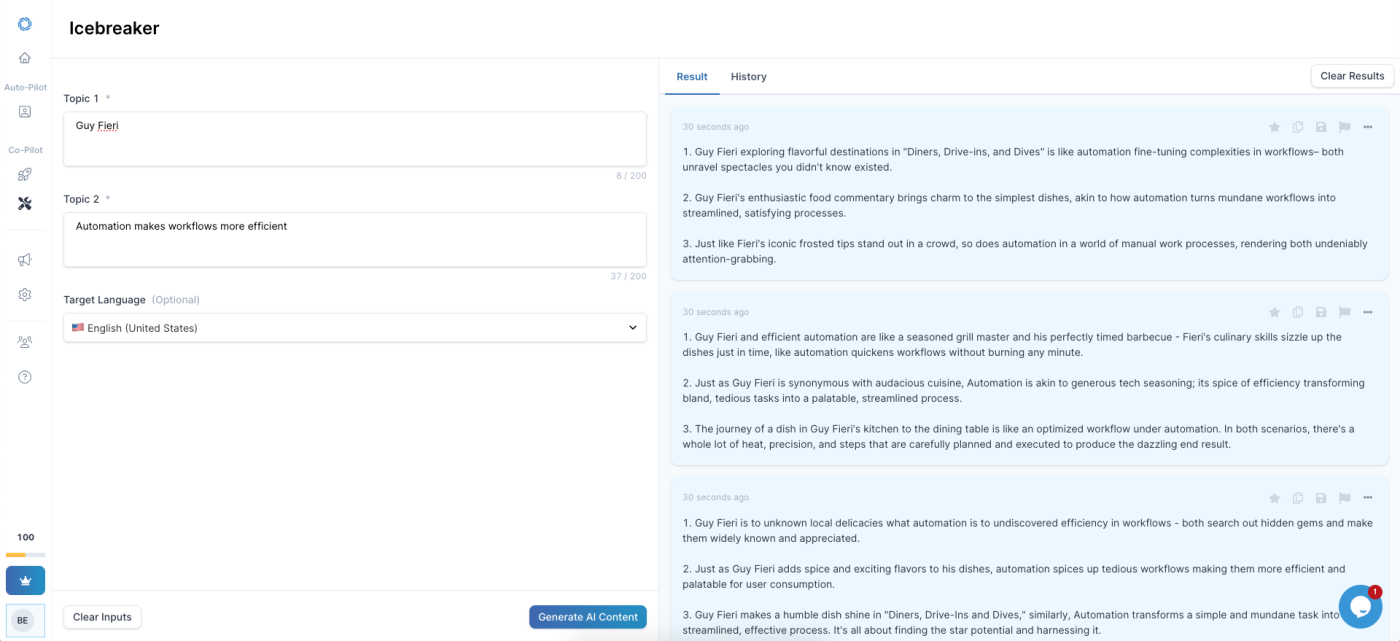
Regie.ai pros:
Huge suite of generative and analytical AI tools geared toward sales
Handles every phase of outreach management and automation
Reasonable price
Regie.ai cons:
Limited integrations
The most dynamic tool on this list, Regie.ai is basically an all-inclusive hub for using AI to manage outreach. Think of it like a mini AI CRM.
Like Postaga, Regie.ai can execute entire outreach campaigns; like Lavender, it can use AI insights to help you improve your writing; and like Clay, it can enrich lead data. It's got scheduling features, email sequencing, generative AI for writing emails for said emails, and so much more. Here are a few of my favorite Regie.ai tools:
Email verification for checking lead contact information
Call script generation
Automatic social media posts generated by feeding it links you want to share
Icebreaker suggestions that find connections between a casual conversation topic and a business topic
Images generated by text prompts
Personalization for adapting email copy to individual prospects
AI agents that warm up leads to prepare them for calls
Regie.ai packs more unique AI sales features than any other tool I tested into a very simple dashboard. You can use its autopilot AI agents to handle campaigns from top to bottom, from automated prospecting to copywriting to sequencing, all the way to web content creation. It even handles inbound emails, while most other AI emailers start and end with outbound.
There are some advanced AI capabilities Regie.ai doesn't offer, like chatbot or virtual receptionist deployment, but I wouldn't expect it to. Regie.ai wraps a lot of features covered by separate tools on this list into one tool for a surprisingly reasonable price, so if you're looking for one product with a lot of AI sales utility, this is the one for you.
Regie.ai pricing: By request
Best AI sales assistant for a dedicated AI receptionist
My AI Front Desk (Web)
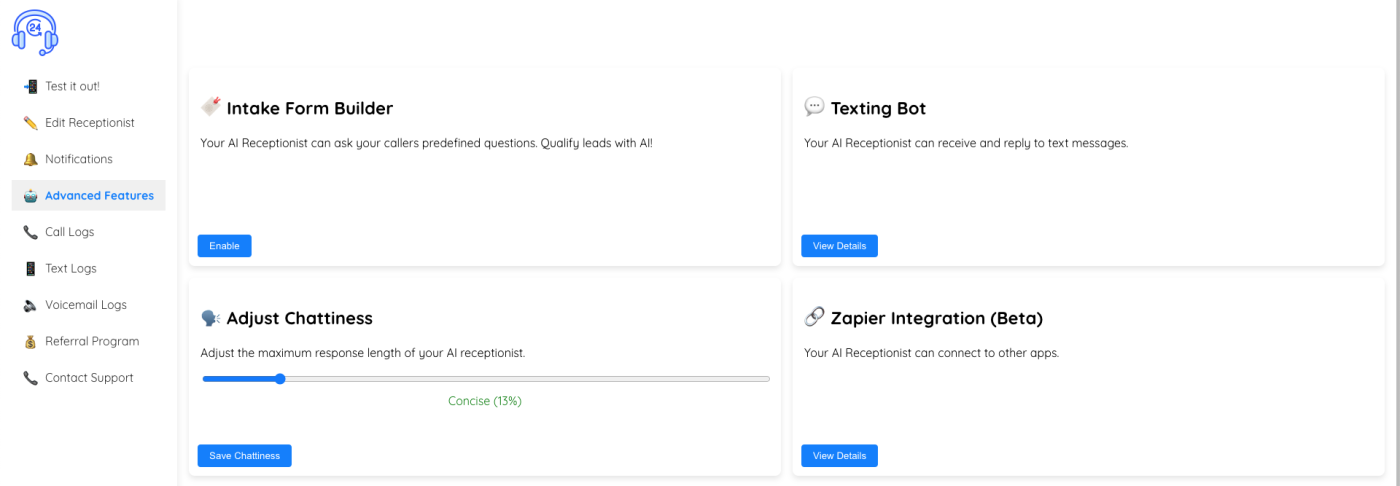
My AI Front Desk pros:
True AI receptionist
Simple to deploy
Includes routing automation and chatbot
My AI Front Desk cons:
Interface is a little shoddy
Customization of voice and tone is limited
When most people think of AI sales assistants, they probably think of a tool like My AI Front Desk—an AI-powered virtual receptionist that can lighten the customer load for sales teams.
The cumbersomely named My AI Front Desk isn't the only virtual receptionist tool out there—or even the most dynamic one—but I give it the nod here because I like how streamlined it is to the essential function of AI virtual receptionist-ism. For complex technology, it's deceptively simple: you set up a business phone line, fill out a business profile, feed the AI with information about your business, add some Q's and A's, and set preferences for elements like chattiness. (I personally like a virtual receptionist who's as chatty as a doorknob.)
Unlike other virtual assistant tools, My AI Front Desk is a true AI receptionist, not an AI call transcriber or automated call router. You describe the way you want your bot to interact and feed it data, and the platform deploys a pleasantly voiced bot assistant that has real-time conversations over the phone. When I talked to the one I built, it fed me responses that differed from the text I fed it, so it doesn't just spit back data verbatim. This receptionist makes decisions (like scheduling appointments) and provides original responses (virtually) the way a human would.
Will this still be the best AI receptionist in five years? Probably not. Better-designed tools that are just as accessible will likely come along, and there are more robust tools that do what My AI Front Desk does for more money. But if you want a straightforward virtual receptionist with a real AI voice (kind of like saying "real imitation crab," I realize) for a low price, this is a great option.
My AI Front Desk pricing: $65/month for the Starter plan
Best AI sales assistant for sales meetings
Avoma (Web, iOS, Android)
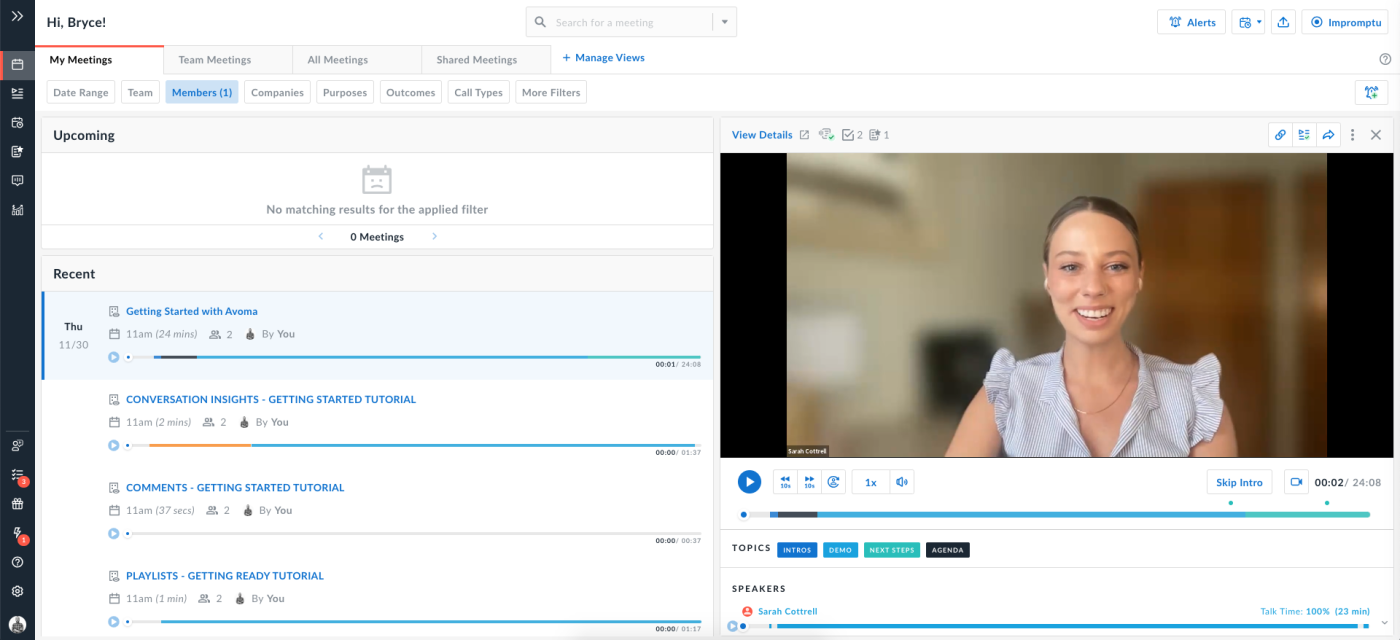
Avoma pros:
AI-powered meeting performance scoring
Intelligent topic detection, live bookmarking, and keyword tracking
Over 30 integrations
Avoma cons:
Key AI features, like AI scorecards, are only available with the Conversation Intelligence tier and up
There are a ton of AI meeting assistants out there, but Avoma stands out as one of the best-suited options for sales use cases.
Avoma's basic utility is to streamline virtual meeting collaboration. To do this, it offers a suite of AI-powered tools for scheduling, contact management, CRM integration, transcriptions, post-meeting summaries, topic detection, and keyword-based bookmarking. These features alone are handy, but Avoma combines them with intelligent analytics based on user activity and conversions, which can then link to your CRM of choice to update sales data.
As a sales tool, Avoma is especially useful by providing insights into sales meetings with its coaching, AI scorecards, and analytics features (available with Conversation Intelligence and Revenue Intelligence plans). Using machine learning, it shows you how agents perform during meetings based on your own criteria for success. You can see if agents do things like inquire about the prospect's current software setup, the prospect's role, or how much they spend on their tools.
Users should find Avoma's dashboard pretty familiar and easy to navigate. It's got a clean interface, it integrates well with interactive charts and embedded video feeds. There are a lot of AI meeting assistants out there that can help with scheduling and transcripts, but not a lot of them have the kind of AI intelligence utility Avoma offers for sales teams.
Avoma pricing: AI Meeting Assistant ($29/month), Conversation Intelligence ($69/month), Revenue Intelligence ($99/month)
The best AI sales assistant for automation
Zapier Agents
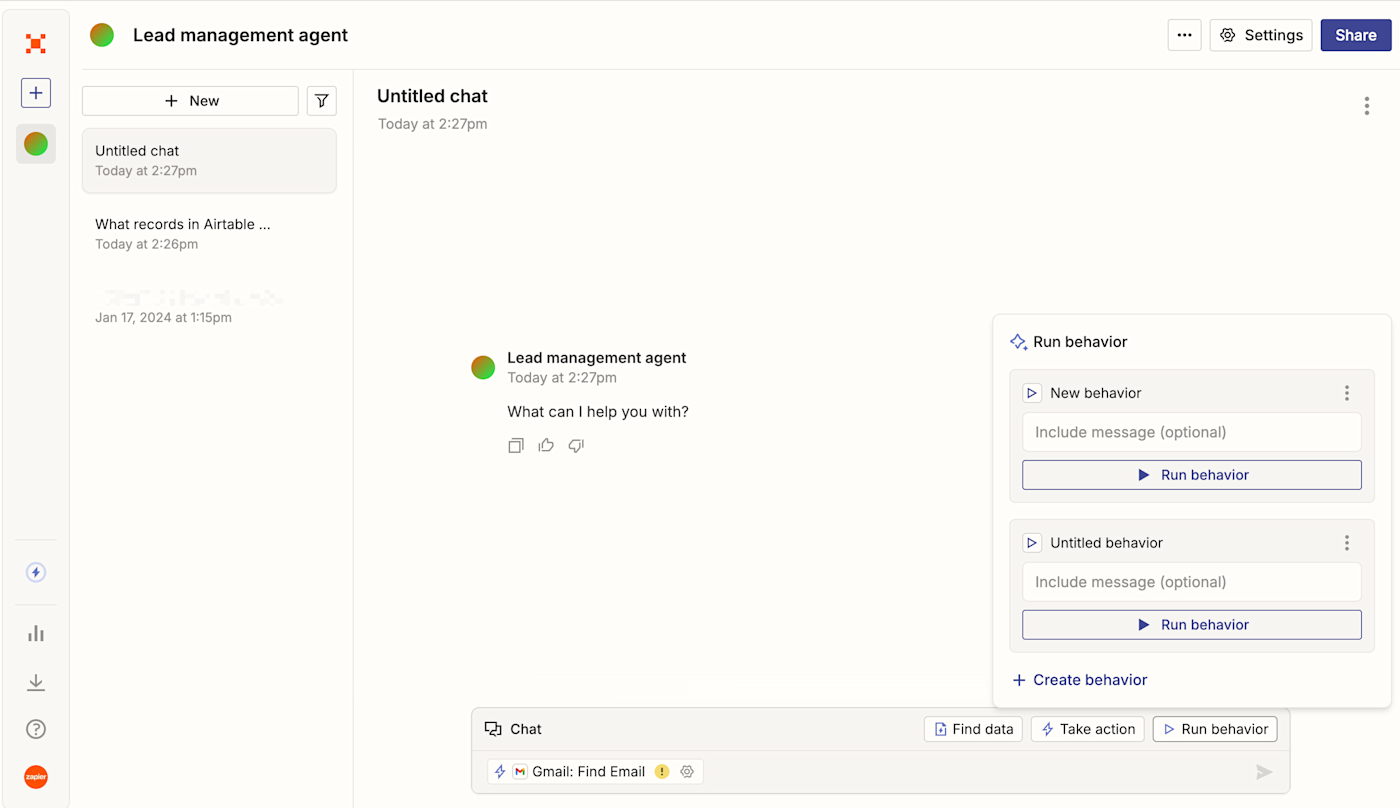
Zapier Agents is an AI workspace where you can create and collaborate with AI agents across Zapier's ecosystem of 7,000+ apps. Connect a data source, such as a CRM, and create an agent in minutes that will perform actions based on the data—it can run when you tell it to, or work in the background without you even being there.
For example, if you receive a new lead through Facebook Lead Ads, that's the trigger. You can instruct the agent to summarize that lead data and then send a notification message to your sales team. This behavior will then repeat anytime you receive a new lead in Facebook Lead Ads, ensuring tasks are handled even when you're not around. Or you can have the agent run actions as you're chatting with it.
Add as many sources as you want—like HubSpot, Zendesk, or Notion, among thousands of other options—and the agent will be able to read and work with that data. That means that, in addition to lead management, Agents can help you streamline your inbox, create content, manage projects, support customers, track expenses, and wrangle your schedule—all from one place. It works with every app on Zapier, so you can create your own sales assistant to do whatever you need it to.
You can build from scratch based on your unique workflows, or get started with a template for lead background research or automated sales lead emails.
Zapier Agents pricing: Free for up to 400 activities per month; from $50/month for 1,500+ activities per month on the Pro plan
Best AI sales assistant for outreach sequencing
Postaga (Web)
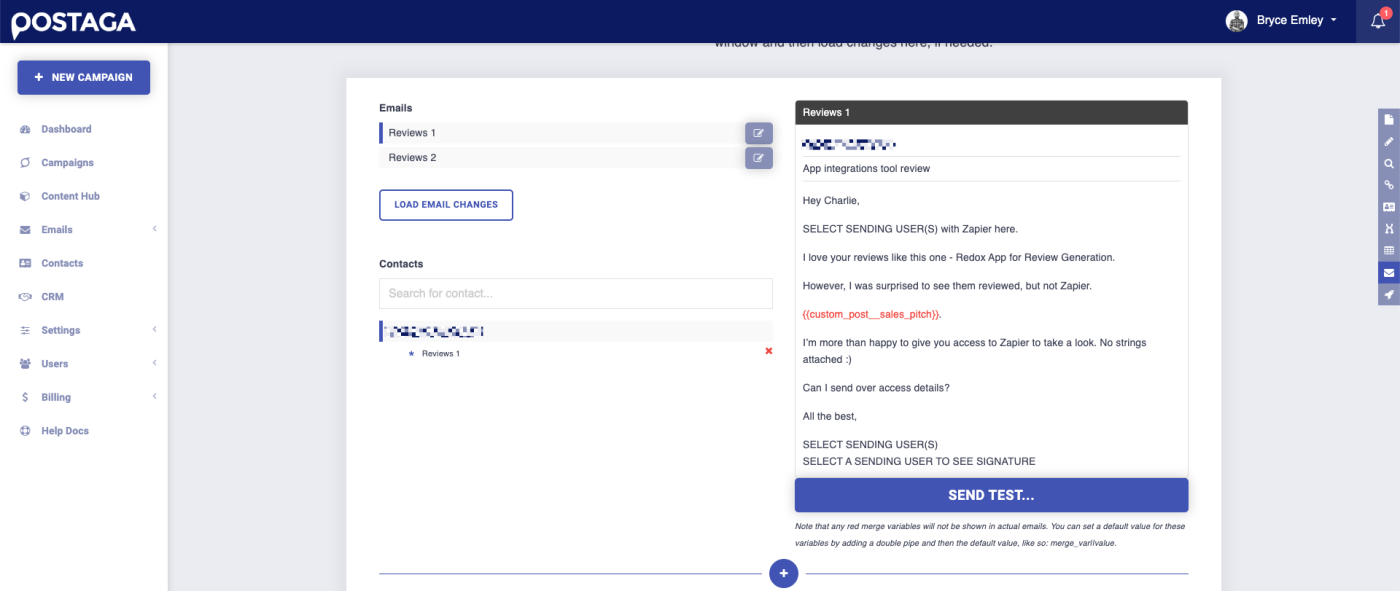
Postaga pros:
Start-to-finish outreach campaign generation
Analyzes existing domain to suggest campaigns
Postaga cons:
Interface isn't the cleanest
Lead capturing isn't as robust as AI tools designed for scraping
Outreach may be the most popular sales application for AI tools, and I tested quite a few of them to find that Postaga was best for automating the entire outreach process.
When you create a campaign, Postaga walks you through campaign types based on your goals, which separate into categories like cold sales outreach, link building, content promotion, and public relations. You can then sort through campaign presets for outcomes like gaining guest posting gigs, suggesting skyscraper content, generating leads, soliciting reviews, and offering tools.
The AI assistant will walk you through more details like competitor examples, information about your offering, and your location, then scrapes the web for viable contacts and suggests an email sequence with timelines. Postaga then generates email copy with custom fields based on profiles and data from your dashboard, which you can edit in a decent native text editing widget.
You can also start your campaign in the Content Hub, which begins with a domain analysis that suggests outreach concepts. After analysis, it offers suggestions for content-related variables like content partners, post titles, and related questions. If you want to develop content from here, Postaga combines data from your analysis with a quick survey to suggest outreach campaigns for your existing webpages, which then trigger the above campaign creation wizard.
I'm not overly impressed with Postaga's interface, which is intuitive but less polished than higher-end tools. I also found that its lead capturing functionality isn't as strong as AI scraping tools that specialize in finding leads, but it's still functional and integrated well into the workflow. But even despite these drawbacks, you could easily use Postaga to develop, execute, and automate a wide variety of outreach campaigns without actually leaving the dashboard.
Postaga pricing: Pro ($99/month), Agency ($299/month)
Best AI sales assistant for scraping lead data
Clay (Web)

Clay pros:
Quickly crawls LinkedIn for custom lead reporting
Tons of data enrichment features
Integrated OpenAI bot
Clay cons:
Limited number of sources to scrape data from
Accuracy may be subject to the quality of databases
Prospecting can be one of the most time-consuming, monotonous tasks for sales teams that do cold outreach, but Clay uses AI to make all that manual Googling a thing of the past.
Clay integrates with LinkedIn to compile spreadsheet-style lead lists customized to meet your data needs. When you start a new list, you're prompted to enter details about your target leads, like job title, experience level, bio/headline keywords, and education. With your parameters set, you can select the depth of information you want to pull. Basic profiles with no contact info are free, but you'll need credits to import complete LinkedIn profiles or have Clay search for email addresses using a "waterfall" tactic of cycling through multiple data enrichment services in succession.
I haven't actually tested the emails (sorry, I won't be cold emailing Microsoft's Product Manager), but Clay's success rate of getting even personal email addresses was pretty high. (For my contact, it found one I no longer use, so the accuracy of the results may be suspect.) And once you have your table, you can even enrich it by using scrape and search commands like "Find recent posts by user" and "Find company competitors," allowing you to present a really wide range of data in your spreadsheet.
Clay even has its own built-in OpenAI bot, Claygent, which you can use to interact with and improve your data. You can select columns in your spreadsheet and ask it to do things like tell you if X company is B2B or generate outreach email copy based on personas.
Clay is one of the most robust tools for building prospect data, with a really impressive array of data enrichment tools. It is somewhat limited in the sources of this data, as it depends mostly on LinkedIn or imports from a few other sources like HubSpot and GitHub. As long as you're looking to prospect the types of people who tend to be on LinkedIn, you can use Clay to create dynamic prospect profiles.
Another huge bonus: you can integrate Clay with Zapier, which lets you connect it to thousands of other apps. That way, you can do things like create or update records in Clay when you take actions in the other apps you use most. Here are some examples to get you started.
More details
More details
More details
Clay pricing: Free plan available, Starter ($149/month), Explorer ($349/month), Pro ($800/month), Enterprise (by request)
Best AI sales assistant for email coaching
Lavender (Web)
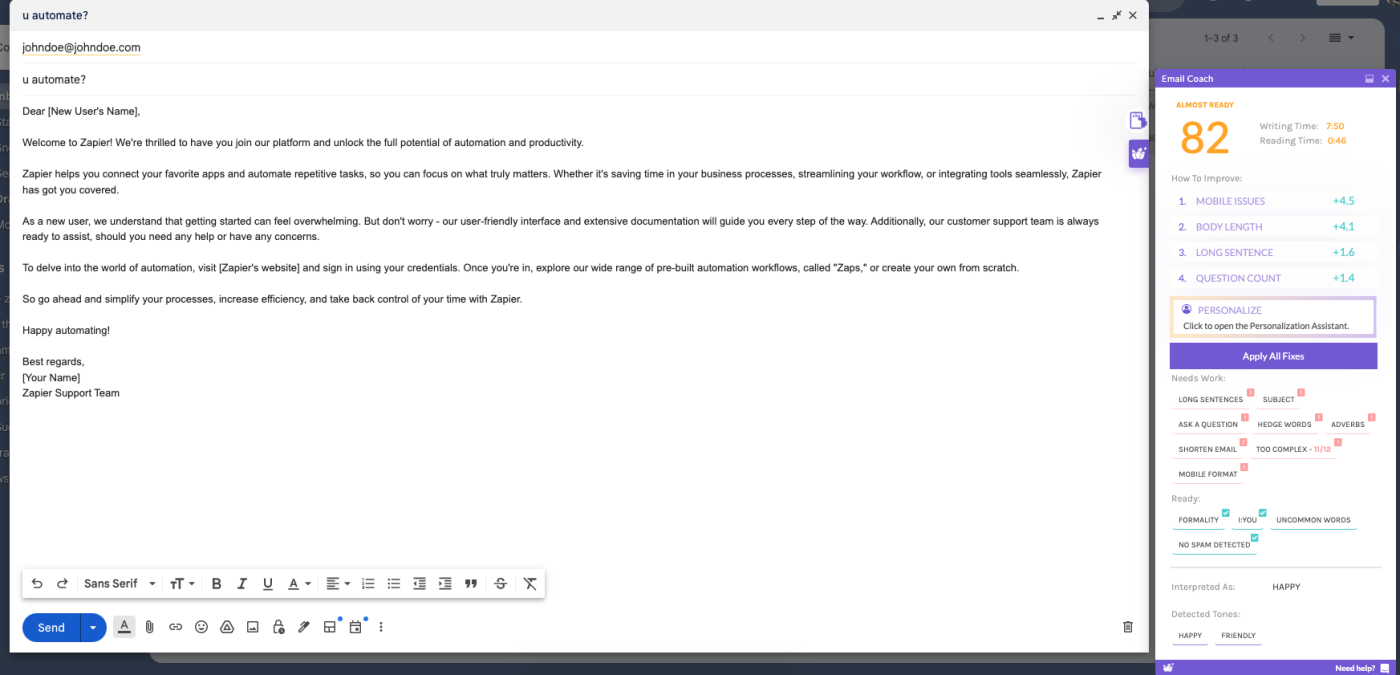
Lavender pros:
Tracks email performance data and offers coaching insights
Syncs with a browser-based dashboard
Integrates generative AI and engagement suggestions into your blank email
Lavender cons:
May slow down your browser slightly
Somewhat distracting presence in inbox
If you're a sales agent and your inbox is essentially your digital cubicle, Lavender could become your new best (work) friend. AI email assistants are a dime a dozen, but for sales purposes, Lavender is a pretty unique offering.
Operating as a browser extension, Lavender syncs with your inbox to feed a suite of sweet AI email tools. Premium users can use the Start My Email feature to turn bullet points into new messages, and even free plan users can tap the integrated ChatGPT bot to compose them on the fly. Lavender even offers suggestions for the output copy within the bot's conversation feed, which you can apply with the click of a button and have it regenerated.
Once you've got a message in your email, Lavender's Email Coach feature shows you detailed scoring metrics, so you can see how to make it more likely to engage your leads. It's even got a personalization assistant to help you give it that (pseudo) human touch. And with more and more users engaging with email on mobile devices, Lavender's mobile preview window is a handy way to ensure your message renders well on all devices. Because I love spending too much time finding just the right GIF, I also love the little GIF finder, but that's really more of a bonus perk.
What makes Lavender especially useful on a team level is its dashboard. As long as the extension is activated, Lavender tracks your email activity, which feeds data into your profile. When you log in on a browser, you can see performance metrics like writing clarity, common readability issues, open rate, and reply rate. From there, the coaching interface helps you find ways to improve your email writing skills and hit KPIs.
Even though I don't work in sales, I use Lavender sometimes. This is one of my favorite tools on this list and my pick for the top AI email companion for sales teams.
Lavender pricing: Basic (Free), Starter ($29/month), Individual Pro ($49/month), Team ($99/month)
Best AI sales assistant for call coaching
Dialpad (Web, macOS, iOS, Android)
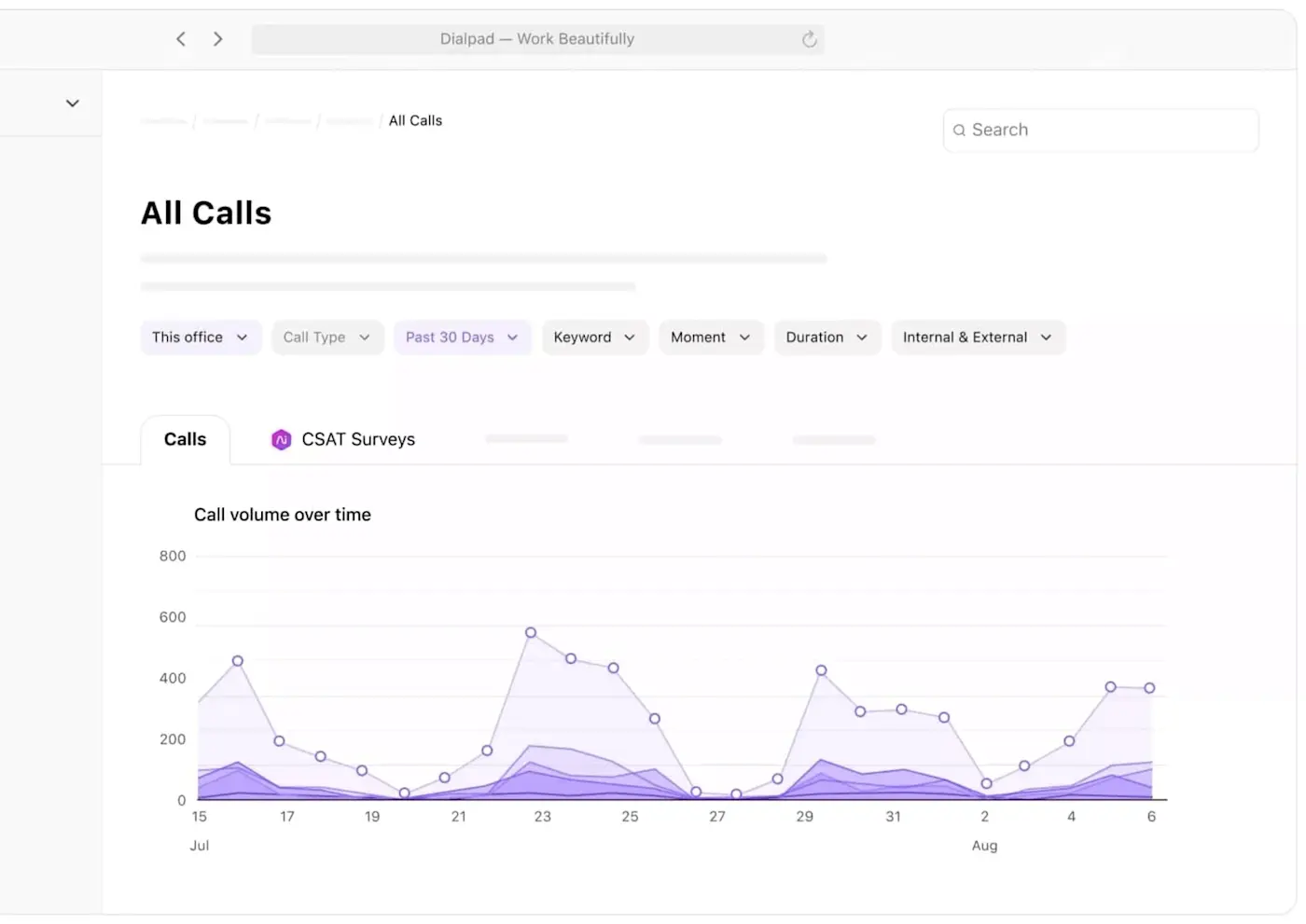
Dialpad pros:
Live AI coaching during calls
AI-powered recaps, transcription, and QA of sales calls
Identifies top-performing call scripts
Dialpad cons:
Limited functionality beyond sales calls
Bare-bones reports and dashboards
You've seen the best AI assistants for cold email, but the reality is that calls (cold or otherwise) are still the number one way to give your sales outreach that personal, human touch. But that doesn't mean AI can't help with this, too.
While Dialpad is a complete AI-powered communication platform rather than a standalone tool, the Dialpad Sell plan gets you access to one of the best AI sales assistants I've seen. It has a suite of features designed to help reps ace the before, during, and after of sales calls. Here are some of the standouts:
Ai Playbooks identify top-performing scripts based on which ones close the most deals.
Real-time assist (RTA) cards give reps live coaching during calls when the AI assistant recognizes certain trigger words.
Ai Recaps automatically generate call summaries, transcripts, and action items to make follow-ups easy.
QA scorecards use AI to evaluate calls, determine how well sales reps adhere to scripts, and offer coaching suggestions.
Live sentiment analysis leverages AI voice recognition to show managers if calls are going well or poorly in real time.
No, I don't know why Dialpad spells AI like that, but it doesn't make this sales assistant toolkit any less impressive. Basically, what an app like Lavender does for email, Dialpad does for sales calls, freeing up time for managers and reps alike to focus on tasks that still require a human pilot.
When you're not on the phone, Dialpad's AI assistant can do things like search and analyze lead data or add records to your CRM. It probably won't replace whatever lead management tool you use now, but it'll definitely help drive insights from sales conversations. Still, the focus is on optimizing calls, so you'll mostly use Dialpad to track internal performance, coach and assist reps, and improve closing rates.
If it seems like Dialpad Sell has a narrow use case, that's because it sort of does. If you're not running a constantly dialing sales team, you probably won't get a ton out of it. But this deep focus on AI-powered calls is also what makes it work as a standalone sales tool.
If you want to expand its functionality, Dialpad has a ton of integrations with CRMs, Microsoft 365, Google Workspace, and project management tools. And you can integrate with thousands of other apps if you connect Dialpad with Zapier, which lets you automatically send data to and from Dialpad. Here are a few pre-made workflows to get you started.
More details
More details
Dialpad pricing: Essentials ($49/month), Advanced ($110/month), Premium ($170/month)
Bonus AI sales tools
Since there are just way, way too many applicable AI tools I could conceivably test (without using AI to do it for me), I've rounded up some of the more popular products that didn't quite fit my list but are definitely worth a look.
BHuman: AI video tool for creating presentations, quote requests, and demos
Vidyard AI Script Generator: Convenient tool from Vidyard that creates sales scripts you can use during meetings
Demodesk: Creates product demos for leads and includes an AI coaching assistant
Crystal: Analyzes the personalities of prospects and gives you tips for interacting with them based on their traits
General AI tools that can help sales teams
In addition to AI sales assistants, there are virtually infinite general AI products out there that can be useful to sales teams, even if they aren't expressly designed for sales. Most of these tools fit into a handful of more general AI tool classes that could also have useful applications for sales processes:
AI writing generators that create original copy, content, messages, and other text
AI chatbots that use AI to respond to user prompts and do things like answer questions, generate text, and paraphrase copy
AI meeting assistants that enhance meetings by generating transcripts, annotating recordings, and providing insights
AI video generators that create and edit videos using AI
AI scheduling assistants that manage calendars, set meetings, and resolve scheduling conflicts
AI chatbot builders that help you create chatbots tailored to your business
AI project management tools that streamline project and task management to maximize productivity
AI presentation builders that leverage AI to structure, design, and generate content for presentations
Automate your AI sales assistant software
I've said it twice in this post, and I'll close by going for three (sorry, actual final basketball reference): you can use just about any AI tool for some portion of the sales process. If there's a tool you'd expect to see on this list that isn't, I either tested it and didn't think it was the best in its class or it just isn't a pure AI sales assistant by my criteria.
No matter which products you pick from (or not from) this list, you can make them do even more by automating them to work with other tools in your workflows. Zapier helps sales teams create flexible workflows that do more with less effort, especially when combined with AI applications like these.
Related reading:
This article was originally published in January 2024. The most recent update, with contributions from Dylan Reber, was in March 2025.



